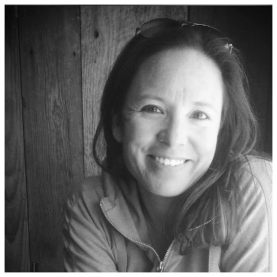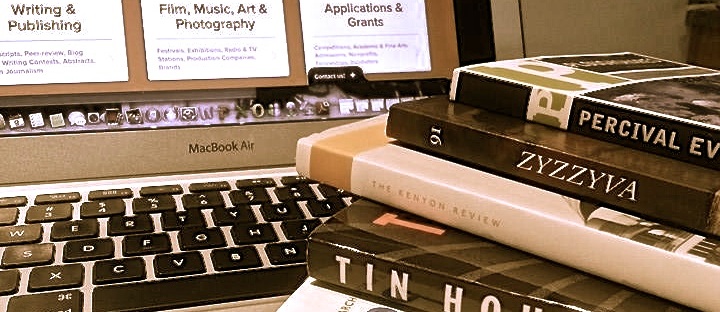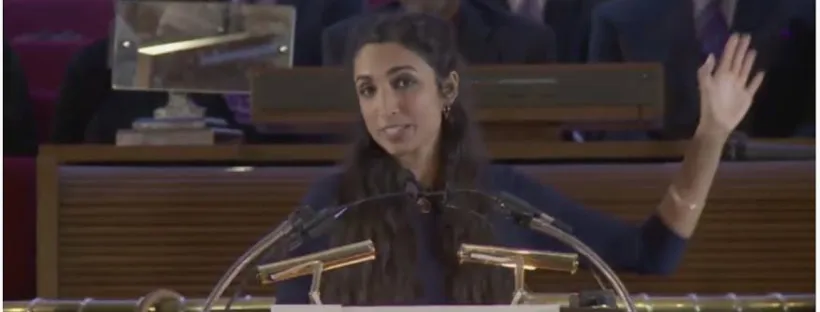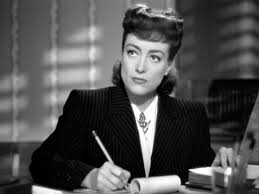By Noriko Nakada
A few days before 2017 came to a close, my family and I drove through a cold, dark night from Oregon to Southern California. As we sped along that long stretch of freeway, my partner and I took turns driving, while our kids slept in the back seat. I dozed off when I could, and when I couldn’t, I stared out at the dark landscape rushing past us: distant mountains pressed up against the horizon, shadows of hills crouched beneath a starless sky. Occasionally, I’d pull out my phone, and gaze at pictures of friends celebrating holidays with family and friends or news updates. That was when I first caught civil rights attorney Valarie Kaur’s speech, “Breathe and Push.”
In her address, delivered at an interfaith watch night on New Year’s Eve of 2016, she spoke about her Sikh grandfather’s immigration to this country, and the white man who came to his aid, rescuing him from a dark cell. She spoke about the injustices and discrimination that dripped across each generation in her family, and how members of her family stood up to hatred. She spoke about raising her young son to see a world that is magical, but the fear that she is bringing her brown son into a world that is even more dangerous than the one where she grew up. But after examining these dark corners where our nation lurks asks:
“What if this darkness is not the darkness of the tomb, but the darkness of the womb? What if our America is not dead, but a country that is waiting to be born? What if the story of America is one long labor?”
She urges us to follow the midwife’s demand, to breathe and push through this darkness. “Because if we don’t push we will die, and if we don’t push our nation will die. So tonight we will breathe, tomorrow, we will labor.”
I wept into the darkness as we sped down the west coast. 2017 was a tough year, but her words helped me reframe the darkness. I knew what to do: breathe and push.
It’s in this spirit that I launch this column, a space to acknowledge the darkness that surrounds us, and then to look for ways to push our labor, our creative work, into the world.
In this first post, the darkness came to me as I left the middle school campus where I teach. I started my car and on the radio, heard news of another school shooting. Unlike the one a few weeks ago at Sal Castro Middle School right here in Los Angeles, this one took place in Florida, and it was much more deadly. As a teacher and mother, school shootings always shake me, and as I drove through busy LA streets, I listened to the nightmare day that unfolded on a school campus not all that different from mine, my daughter’s, my partner’s and wondered when this darkness of gun violence might find me and those I love.
A few days later, I sat at the page, and urged myself to push something into the world that could make enough of a difference that when my daughter enters high school, maybe we would keep track of the number of years it’s been since there’s been a school shooting rather than counting the number of school shootings so far in a calendar year. And although these few paragraphs and a few social media posts about my solution: someone, please buy back the guns… I looked to two pieces “Dawn and Mary” an essay by Brian Doyle from The Sun and a poem “On the fifth anniversary of the Sandy Hook Elementary School shooting” by Melanie Corning in The Rising Phoenix. Their work reminds us of another dark day and ways we can push toward something better.
I’m not pushing anything more than this small blog post right now, but it is what I’m breathing and pushing out today. And maybe if just a few of you join me, with all of us breathing and pushing, we can move things in the direction of a safer nation for us all.
 Noriko Nakada writes, blogs, tweets, parents, and teaches middle school in Los Angeles. She is committed to writing thought-provoking creative non-fiction, fiction, and poetry. Publications include two book-length memoirs: Through Eyes Like Mine and Overdue Apologies, and excerpts, essays, and poetry in Lady Liberty Lit, Catapult, Meridian, Compose, Kartika, Hippocampus, The Rising Phoenix Review, and Linden Avenue.
Noriko Nakada writes, blogs, tweets, parents, and teaches middle school in Los Angeles. She is committed to writing thought-provoking creative non-fiction, fiction, and poetry. Publications include two book-length memoirs: Through Eyes Like Mine and Overdue Apologies, and excerpts, essays, and poetry in Lady Liberty Lit, Catapult, Meridian, Compose, Kartika, Hippocampus, The Rising Phoenix Review, and Linden Avenue.





 Noriko Nakada writes, blogs, tweets, parents, and teaches middle school in Los Angeles. She is committed to writing thought-provoking creative non-fiction, fiction, and poetry. Publications include two book-length memoirs: Through Eyes Like Mine and Overdue Apologies, and excerpts, essays, and poetry in Lady Liberty Lit, Catapult, Meridian, Compose, Kartika, Hippocampus, The Rising Phoenix Review, and Linden Avenue.
Noriko Nakada writes, blogs, tweets, parents, and teaches middle school in Los Angeles. She is committed to writing thought-provoking creative non-fiction, fiction, and poetry. Publications include two book-length memoirs: Through Eyes Like Mine and Overdue Apologies, and excerpts, essays, and poetry in Lady Liberty Lit, Catapult, Meridian, Compose, Kartika, Hippocampus, The Rising Phoenix Review, and Linden Avenue.

